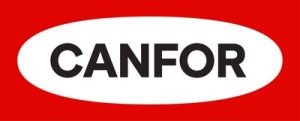I am 50 years old and for the majority of my life I have worked construction and manual-labor jobs. In 2012, at the age of 38, I went back to school and got an associate’s degree in computer networking.
I had almost finished my bachelor’s degree in software development when circumstances forced me to leave school. I now have a decent job earning $45,000 a year doing tech support for a good, fast-growing company.
Due to a lot of factors — not the least of which has been the disdain by companies for the source of my associate’s degree, an online for-profit college in the Southwest — I spent a long time looking for a position in network administration.
Unfortunately, the 401(k) at work does not offer employer matching. Would I be better off taking 10% of my checks and putting them into a Roth IRA or just using the 401(k) from work? I have nothing saved for retirement, but I have the 40 credits needed to draw Social Security.
I currently have $36,000 in student-loan debt in forbearance in the SAVE program and I have filed a borrower’s defense application due to the fact that my alma mater lied about having a job-placement program. My aim is to be able to retire relatively comfortably on my Social Security and retirement income.
What’s my best move here?
Still in the Game
You nailed the three pillars of success: education, education, education.
Given your salary of $45,000 and the fact that you do not have an employer match, you are probably better off taking advantage of the fact that you are in a relatively low income-tax bracket and contribute to a Roth IRA. Your salary will increase as your career advances.
Martin Schamis, a certified financial planner with Janney Montgomery Scott in Philadelphia, agrees that tax-free growth is a good outcome for you at this point in your career, and you will be glad of that when it comes time to make withdrawals.
“Given your income and the amount you’re looking to set aside,” Schamis says, “the differences in contribution limits between a Roth IRA and a 401(k) won’t come into play since you’re able to save up to $8,000 this year into a Roth, including your catch-up contribution for being over 50.


